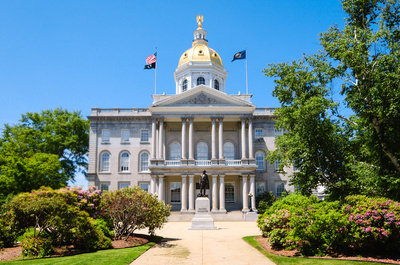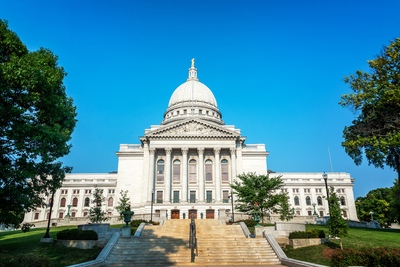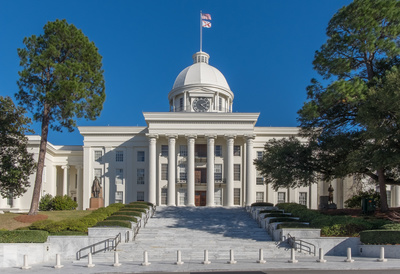
Health Care & Wellness
Alcohol Legislation Takes A New Turn: Canned Cocktails, Direct-to-Consumer Shipping, and More
February 12, 2026 | Kerrie Zabala
November 1, 2022 | Kim Miller

Key Takeaways:
On November 8, 2022, voters in five states will have the chance to decide the future of reproductive rights in their state. These ballot measures come after the U.S. Supreme Court decision in Dobbs v. Jackson, which determined that the U.S. Constitution does not provide the right to an abortion, which has made abortion a state issue.
Voters in California, Vermont, and Michigan will be deciding whether to amend their state constitutions to explicitly include a right to reproductive freedom, which would include the right to an abortion. In Kentucky, voters will be deciding whether to amend their state constitution to provide that there is no right to an abortion or require state funding for abortion. In Montana, voters will be deciding whether to allow the Montana Born-Alive Infant Protection Act, which requires that any infant that is born alive must take medical action to preserve the life of the infant, to go into effect.
These ballot measures on Election Day follow a vote in Kansas in August where voters rejected an amendment to the Kansas Constitution that would have stated there was no right to an abortion in Kansas.
The question on the Kentucky ballot is, “Are you in favor of amending the Constitution of Kentucky by creating a new Section of the Constitution to be numbered Section 26A to state as follows: To protect human life, nothing in this Constitution shall be construed to secure or protect a right to abortion or require the funding of abortion?"
While some ballot measures can be wordy and convoluted, this one is fairly straightforward. Voters are being asked to decide if (1) the right to an abortion is not something that exists in Kentucky and (2) stating that the state government cannot be required to fund an abortion, which would effectively prohibit taxpayer dollars from being used to obtain an abortion. This ballot measure would not outlaw abortion in Kentucky, but by stating that there is no right to an abortion, state lawmakers could enact restrictions, or a complete ban, on the procedure at a later time.
What does a “yes” vote mean?
Voting in favor of this ballot measure means that abortion is not a right granted under the Kentucky Constitution and that taxpayer dollars cannot be required to pay for the procedure under public health insurance programs, such as Medicaid.
What does a “no” vote mean?
Voting against this measure means that the Kentucky Constitution will not be amended and that taxpayer funds could be used for abortions. However, a rejection of this measure would not prohibit Kentucky lawmakers from passing legislation to ban or restrict access to abortions.
In Montana, voters will have a legislative referendum on the Montana Born-Alive Infant Protection Act, which was passed by the legislature in April 2021. This referendum does not alter the state constitution or outlaw abortions, which are currently legal in Montana, but it would require that any infant that is born alive, at any stage of development, is considered a legal person. Should voters approve this Act, when a child is born alive after an induced labor, C-section, or abortion, doctors will be required to perform life-saving measures.
In Montana, it is currently illegal to knowingly or negligently cause the death of a premature, viable infant. Opponents of the measure have raised concerns that should this Act go into effect, it will traumatize families of children who are born prematurely with little to no chance of survival. Under the current law, families who give birth to premature infants who are not expected to survive can have palliative care provided and can remain with the infant until they pass. Should the Act pass, doctors will be forced to perform life-saving measures on a premature child, even if after those measures the child is not expected to survive, or else face the threat of a fine and imprisonment for up to 20 years.
What does a “yes” vote mean?
A “yes” vote means the Montana Born-Alive Infant Protection Act will go into effect.
What does a “no” vote mean?
A “no” vote means the Montana Born-Alive Infant Protection Act will not go into effect and there will be no change to Montana’s current laws on the treatment of premature infants.
Michigan voters will be determining whether to amend the state constitution to establish an individual right to reproductive freedom, which includes the right for individuals to make decisions about pregnancy and abortion. Additionally, this measure would establish an individual right to make decisions about contraception, sterilization, miscarriage management, and infertility, while allowing the state to regulate abortions after fetal viability (about 24 weeks).
Currently, Michigan law includes a law passed in 1931 that prohibits abortions in all cases, but that law has been blocked by state courts. Should this referendum pass, the 1931 law will become invalid and presumably, the cases surrounding the 1931 law would be dismissed. Should the referendum fail, the courts could ban the 1931 law or allow it to be enforced. However, if the referendum fails and the courts ban the 1931 law, the Michigan legislature would still be able to pass laws that restrict abortion access.
What does a “yes” vote mean?
Abortion will be legal in Michigan, with some future restrictions possible for individuals seeking an abortion after a fetus is viable.
What does a “no” vote mean?
A no vote will mean the state constitution will not change and Michigan courts will decide the fate of the 1931 law and the Michigan Legislature would be able to place limits on abortion.
California voters will be deciding whether to amend their state constitution to provide that the state cannot “deny or interfere with an individual's reproductive freedom.” Currently, the California constitution protects the right to privacy but does not explicitly state that the right to privacy includes the right to obtain an abortion. However, the California Supreme Court has found that the right to privacy includes the right for individuals to make their own reproductive choices. Additionally, abortion is currently legal until fetal viability in California.
What does a “yes” vote mean?
A yes vote means the state constitution will be amended to explicitly include a right to reproductive freedom.
What does a “no” vote mean?
A no vote means the state constitution will remain unchanged and abortion rights in the state will remain unchanged.
Vermont voters will be deciding whether to amend their state constitution to provide a right to reproductive autonomy. In Vermont, state law guarantees the right to an abortion, and if Vermont voters approve this ballot measure it will make abortion a right granted in the state constitution. Additionally, amending the state constitution will make it harder to change Vermont’s current laws on abortion in the future.
What does a “yes” vote mean?
A yes vote means the state constitution will be amended to include a right to reproductive autonomy.
What does a “no” vote mean?
A no vote means that the state constitution will not be amended, but abortion in Vermont will remain legal.

February 12, 2026 | Kerrie Zabala

February 5, 2026 | Bill Kramer

February 5, 2026 | Geoff Hawkins